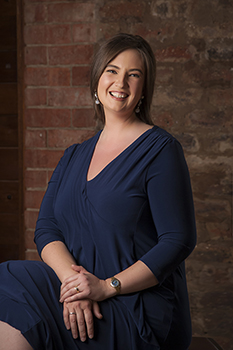Latest News Archive
Please select Category, Year, and then Month to display items
12 January 2024
|
Story Nonsindiswe Qwabe
|
Photo Sonia Small
 Since joining the UFS in 2008, Dr Grey Magaiza has worked extensively on approaches that can foster the socio-economic transformation of societies.
Since joining the UFS in 2008, Dr Grey Magaiza has worked extensively on approaches that can foster the socio-economic transformation of societies.
“The future should be one where communities can decide on their development agenda and futures. That’s the most important for me.” Dr Grey Magaiza, Deputy Director of the Centre for Gender and Africa Studies (CGAS) and Head of the Community Development programme on the Qwaqwa Campus, is passionate about capacitating communities to be agents of change and advancement. His vision for the future emphasises the empowerment of communities to take charge of their development by actively participating in decision making and the implementation of development projects that can improve their lives.
Since joining the UFS in 2008, Dr Magaiza has worked extensively on approaches that can foster the socio-economic transformation of societies. Over the years, he has crafted his research speciality into one that he is most proud of – being an interdisciplinary scientist immersed in the development of communities.
“I’m in a fortunate position of researching what I like. I say ‘fortunate’, because I’ve taken the time to understand what I’m passionate about, which is the overall field of rural livelihoods and livelihood futures – in short, community development. My research starts from an engaged university, understanding the elements that a university must use to enhance transformation and relevance to its immediate community in terms of development.”
One of the ways he has done this is by looking at social entrepreneurship as a development approach for young people in a rural setting. Through workshops with non-profit and civic organisations in Qwaqwa, Dr Magaiza has been helping these organisations to map out their needs and actively meet them through the involvement and support of external role players.
“We understand that communities are part of the national development agenda, but even that national agenda respects community knowledge and intentions and allows communities to shape their identity. A critical enabler of this is community organising. You bring back the capacity in communities to have dialogues on issues affecting them as spaces for engagement, knowledge exchange, and for people to just talk about their way forward.”
By enabling communities to define their development agenda, they can address their specific needs, challenges, and aspirations, he said. “When I look at livelihood futures, it’s quite an exciting aspect of my work – it’s like looking into a fortune tellers’ globe, because you’re not deciding for communities what they should do, but the communities themselves take those decisions.”
PSP allows Dr Thom Wium to develop as an academic
2016-12-26

For Dr Matildie Thom Wium, the
rewarding part of teaching is “the
moments of synergy with a group of
students” and when she senses that she
could, for instance, help them to better
understand a music selection.
Photo: Sonia Small
Being part of the Vice-Chancellor’s Prestige Scholars Programme (PSP) has opened doors for Dr Matildie Thom Wium. She is able to better plan her research, and the overseas trips she has to undertake for this helps to develop her skills.
The senior lecturer in the Odeion School of Music (OSM) at the University of the Free State (UFS) says these are some of the advantages the PSP holds for her.
She attended two international conferences this year – in London in January, and in New York in August. Furthermore, she is working on musical analysis with Prof Timothy Jackson at the University of North Texas, US from 12 September 2016 to 31 December 2016. Prof Jackson is a research professor and was one of her PhD promoters.
Conferences contribute to her vision
“I think the PSP is a fantastic initiative,” says Dr Thom Wium, whose husband Daniël Wium is a lecturer in Astrophysics at the UFS. She says the reseach support from the PSP is amazing. “In addition, the writing retreats offered by the PSP help to set time aside during the busy semester to work on articles.”
“I think the PSP is a fantastic initiative.”
The conference in London was on operatic practice in the 19th century. In the US, Dr Thom Wium, who has been working at the UFS since 2007, also participated in a panel discussion on this topic. “It means a lot for my vision as an academic to participate in conferences where I have the opportunity to meet and exchange thoughts with the people whose work I read and cite.”
Involvement in SA equally important
However, she believes that it is equally important to stay involved locally. At the conference of the South African Society for Research in Music, which was hosted by the OSM from 25 to 27 August 2016, she presented a paper on composer Arnold van Wyk and performed a song cycle by him. She did research on Van Wyk for her PhD.